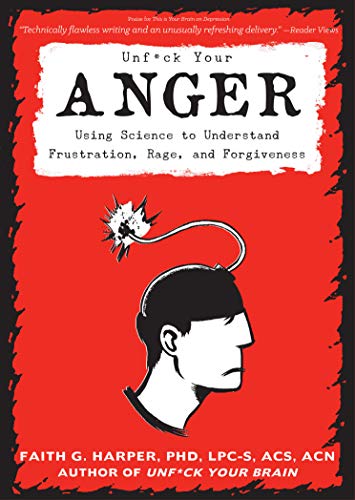What do you think?
Rate this book


109 pages, Kindle Edition
First published January 14, 2020

"In this book, we are going to discuss the common triggers of anger, using some new research on the brain’s rage circuits. Then we are going to look at what happens in our body when we have an anger response. After the science-y part of what anger is, we’re gonna do the unfuckening part.
We’re gonna go through all those light-shining activities that help us understand our unique and personal anger responses, and discuss how to channel our anger into better relationships or barnstorming social action. And I’m gonna share all the work I’ve done in my life around learning how important forgiveness is for my own-damn-self. We are going to discuss ways of living with our very real and valid anger responses without losing our shit or swallowing our rage like so much poison. Because if feeling anger is OK, you can be angry and still be OK."
"By shifting from irritation and defensiveness, he validated the experiences of the individuals who have been victimized, which lent support to social change.
2) Own our privilege and power: We are not the sum of our disenfranchisement, we are the sum of our assets. And our assets are not just our fundamental agents of change, our recognition of them informs our compassion for others and our intersectionality. My friend Naomi Brown, who is a minister and social worker, calls this conscious using of privilege to help those who do not have it sneaking in the front door. Power and privilege lets us get into spaces others could not. This doesn’t mean speaking for them, but providing support and amplification of their experiences..."
"Being continuously angry is not compatible with being a peaceful person at heart.""Feel your anger and pain, ..we can't forgive what we haven't acknowledged...Spiritual bypassing...using spiritual practices as a way of not coping with our unresolved wounds."